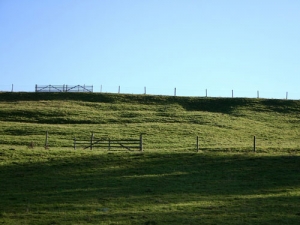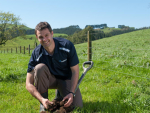The co-op returned $76 million to shareholders, chairman David Peacocke told the annual meeting of shareholders.
The results capped off a milestone year for Ballance, which celebrated 60 years since the first shares in legacy company, Bay of Plenty Fertiliser, were issued. Noting the co-op "not only survives but also thrives", he says its core value of collective strength remained unchanged while it evolved to meet the current needs of farming.
"What has changed is that farmers are busier, operating over larger properties and working within increasingly tight environmental demands. So along with a secure supply of the right nutrients, we continually broaden our scope to tailor our products, our technology solutions and our advice for today's farms, and the farms of the future."
CEO, Mark Wynne, says understanding change and making the most of it would see Ballance right for the next six decades.
Ballance's future focus includes the potential for redevelopment of its Kapuni ammonia urea plant, with a proposal due to go to shareholders in 2016.
"The big goal for us is a plant which ticks every box for efficiency, low carbon footprint, waste minimisation, quality and safety. Farms will always need fertiliser. The ideal for us is a state-of-the-art plant which is globally competitive, and can markedly increase the $150 million in forex savings we achieve on importation costs now. When you are thinking 60 years ahead, an investment in a secure, environmentally outstanding source of quality nutrients makes complete sense."
Shareholders approved constitutional changes that will see the co-op move from three wards to two, one in each island, with provisions for the board to move to national director elections over time. Peacocke says with Ballance now close to being a $1 billion business, it is important shareholders can choose from a deep pool of candidates to select the best directors with the best skills and experiences.



















